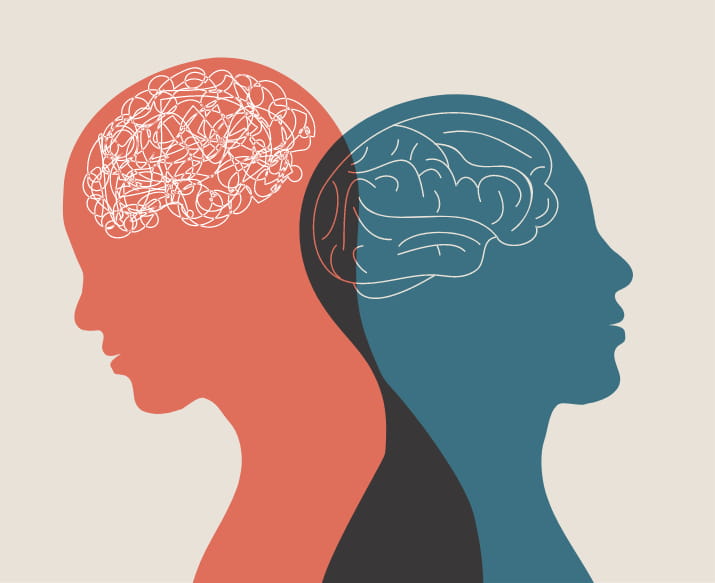Elementa Psychology Kew: Comprehensive Psychological Support for All Ages
Elementa Psychology Kew: Comprehensive Psychological Support for All Ages
Blog Article
Scientific Psychologists Vs Psychiatrists: Trick Distinctions You Must Know
The distinction between clinical psycho therapists and psychoanalysts is essential for individuals looking for mental health treatment, as each specialist offers special knowledge formed by their academic backgrounds and therapy approaches. While clinical psychologists focus mostly on psychiatric therapy to resolve psychological and emotional worries, psychiatrists, as clinical physicians, bring a medicinal perspective to therapy, frequently linking drug with therapeutic techniques. This distinction elevates vital questions concerning which professional may be ideal suited for numerous mental wellness needs. As we discover these key differences better, the ramifications for treatment choices come to be increasingly significant.
Educational Background
Several people seeking mental wellness services might question the distinctions in educational histories in between professional psycho therapists and psychoanalysts (clinical psychologists kew Melbourne). The differences are crucial and substantial for understanding the roles each professional plays in psychological healthcare

On the other hand, psychiatrists are clinical physicians (M.D. or D.O.) who complete a four-year medical level followed by a residency in psychiatry, which lasts an extra 4 years. Their clinical training furnishes them to understand the organic elements of mental illness, enabling them to recommend medicines and provide a medical point of view on treatment.
These varying educational paths emphasize the special experience each expert offers the area, forming their techniques to treatment, medical diagnosis, and person treatment (clinical psychologists kew Melbourne). Comprehending these distinctions is vital for individuals browsing the psychological health system

Treatment Approaches
Diverse therapy techniques identify the techniques of medical psychologists and psychiatrists, showing their unique training and locations of expertise. Professional psycho therapists mainly use psychotherapy, using methods such as cognitive-behavioral treatment (CBT), dialectical behavior modification (DBT), and psychodynamic treatment. Their emphasis is on psychological and emotional assessment, treatment, and the development of dealing strategies to address numerous psychological wellness conditions. They may deal with individuals, groups, or couples, customizing their therapeutic approaches to the particular requirements of their customers.
On the other hand, psychoanalysts are uniquely qualified to diagnose and treat psychological wellness conditions via a mix of psychotherapy and pharmacotherapy. Their medical training permits them to prescribe medicines, which can be important for managing problems such as schizophrenia, bipolar affective disorder, or extreme clinical depression. Psychiatrists usually take an even more biomedical technique, considering the organic, psychological, and social elements influencing a person's psychological health.

Role in Mental Wellness Care
The functions of medical psycho therapists and psychoanalysts in psychological healthcare are complementary, mirroring their distinctive training and competence. Medical psycho therapists largely focus on the assessment, diagnosis, and treatment of mental issues via numerous therapeutic techniques, including cognitive-behavioral treatment (CBT), interpersonal therapy, and psychoeducation. Their training emphasizes recognizing human behavior, psychological performance, and the restorative procedure, allowing them to supply evidence-based interventions tailored to private needs.
On the other hand, psychiatrists are medical doctors that focus on the medical diagnosis and therapy of psychological wellness conditions, typically employing a biomedical strategy. They can prescribe drugs to handle psychiatric signs and symptoms and are trained to take into consideration the physical elements of psychological health and wellness, such as neurobiology and pharmacology. This medical perspective permits psychoanalysts to resolve intricate situations that may call for a mix of drug monitoring and psychiatric therapy.
Together, professional psycho therapists and psychoanalysts create a thorough mental health and wellness care structure, dealing with both emotional and medical requirements. Collaboration between these experts makes certain that people get all natural care, inevitably improving treatment outcomes and improving the lifestyle for people experiencing mental health and wellness obstacles.
Kinds Of Conditions Dealt With
While both professional psycho therapists and psychoanalysts address a variety of psychological health conditions, their techniques and locations of proficiency frequently dictate the specific problems they treat. Clinical psycho therapists primarily concentrate on the assessment and therapy of emotional, behavioral, and cognitive conditions through psychiatric therapy. They frequently work with patients experiencing anxiety conditions, anxiety, post-traumatic stress condition (PTSD), obsessive-compulsive disorder (OCD), and different individuality disorders. Their therapeutic techniques include cognitive-behavioral treatment, dialectical behavior treatment, and other evidence-based modalities.
On the other hand, psychoanalysts are medical doctors that can prescribe medicines and have specialized training in the organic aspects of psychological health and wellness. They commonly take care of a lot more intricate psychiatric problems that may require medicinal treatment, such as schizophrenia, bipolar illness, severe clinical depression, and material utilize conditions. Psychiatrists might integrate medication monitoring with psychotherapy but typically concentrate on the medical and biochemical components of mental health and wellness concerns.
Recognizing these distinctions can help individuals look for the proper care tailored to useful source their specific psychological health demands, ensuring they obtain the most reliable therapy for their problems.
Insurance Coverage and Expense Considerations
Navigating insurance policy and expense factors to consider is a vital facet for individuals looking for psychological wellness solutions from professional psychologists or psychiatrists. Both professions may approve numerous insurance coverage plans, yet the degree of coverage can vary significantly. Psychoanalysts, who usually prescribe drug, may have various invoicing techniques contrasted to clinical psycho therapists, who commonly focus on psychotherapy.
Insurance policy repayment for psychiatric solutions may be much more beneficial due to the clinical nature of their technique. Consequently, patients may experience higher deductibles or co-pays when consulting a psychiatrist. On the other hand, scientific psychologists may offer services billed under psychological wellness benefits, which could cause reduced out-of-pocket costs, depending upon the insurance firm's policy.
Moreover, people should take into consideration the frequency and period of treatment sessions when reviewing his response costs. While psychoanalysts could supply shorter, medication-focused brows through, medical psychologists commonly engage in longer sessions devoted to therapeutic techniques.
Eventually, understanding the details regards to one's insurance coverage strategy, including network accessibility, coverage limits, and pre-authorization demands, is crucial. People are urged to contact their insurance coverage copyright to make clear benefits and explore choices for affordable mental healthcare.
Final Thought
In recap, the distinctions in between scientific psychologists and psychoanalysts are critical for notified choices regarding mental health and wellness care. Educational history, therapy approaches, and roles in mental wellness significantly differ between the 2 professions.
The distinction in between medical psycho therapists and psychoanalysts is vital for people seeking psychological wellness care, as each professional offers distinct competence formed by their educational backgrounds and therapy methods.The roles of clinical psychologists and psychoanalysts in psychological health and wellness treatment are complementary, mirroring their distinctive training and knowledge.While both medical psycho therapists and psychoanalysts resolve a vast variety of this link psychological health and wellness disorders, their methods and locations of experience often dictate the specific conditions they deal with.Navigating insurance coverage and cost considerations is a vital element for individuals looking for psychological wellness solutions from clinical psycho therapists or psychiatrists.In summary, the differences in between scientific psychologists and psychiatrists are crucial for notified choices relating to mental wellness care.
Report this page